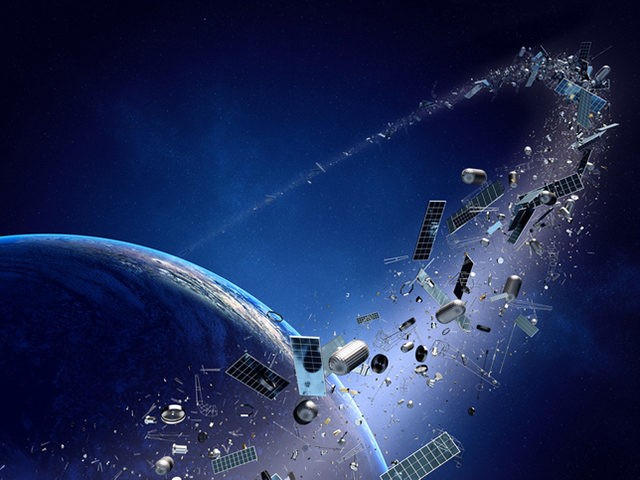Astroscale will launch its first magnetic space junk cleaner in a demonstration set for early Saturday morning at Baikonur Cosmodrome in Kazakhstan.
According to data the European Space Agency released in January, over 6,000 successful rocket launches have occurred since the beginning of the Space Age in 1957. As of 2021, those launches have set well over 10,000 satellites to orbit our planet. Of those, more than half continue their endless journey — but only about 3,800 are still operational. The rest, along with debris shed by each launch, make up over 9,200 tons of orbital garbage.
In the wee hours of March 20, Astroscale will launch the first major test of a satellite that could become the first in a new line of orbital janitors. A Soyuz 2 rocket will launch the 175-kilogram cleaner to snatch a defunct satellite from orbit, and pull it back through the atmosphere until it burns away. Astroscale’s craft will continue this delicate game of search and destroy until sometime in September or October 2021.
One of its first and most dramatic challenges will be the satellite’s ability to dock with a derelict device travelling as much as 17,500 miles per hour. For reference, rifle bullets top out at around 2,100 mile per hour. It will accomplish this feat by way of a special magnetic docking plate, which Astroscale hopes to standardize for easy cleanup of future launches.
But while the relatively diminutive experimental spacecraft may prove useful in preventing further pollution of the near-Earth environment, the aforementioned thousands of tons continue to be responsible for over 560 destructive collisions, and counting. Several companies and organizations around the world — including the Japan Aerospace Exploration Agency, the European Space Agency, and Airbus — continue their search for solutions to remove those ongoing hazards.

COMMENTS
Please let us know if you're having issues with commenting.